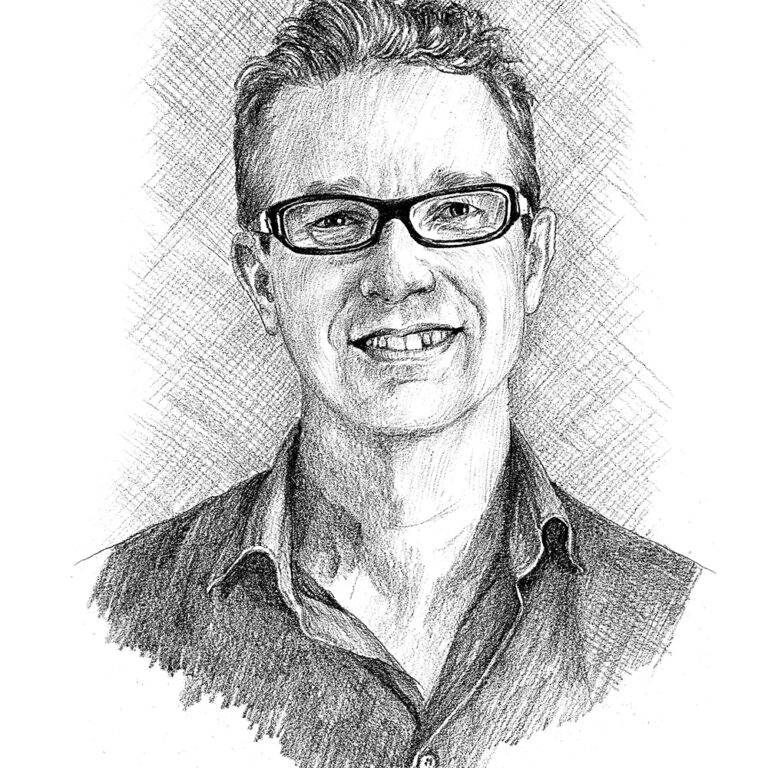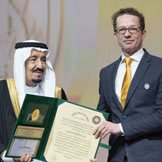

Professor Joris A. Veltman
King Faisal Prize in Medicine 2016 Laureate
Topic: "Clinical Application of Next Generation Genetics"
Working in genetics is fascinating; we know very little about genetics, hence we still live in the dark ages of genetics

Joris Veltman obtained his B.S. in Molecular Sciences from Wageningen University in 1995 and his Ph.D. in Molecular Cell Biology and Otorhinolaryngology from Maastricht University in 1999, followed by two post-doctoral fellowships, the first in the Department of Cancer Genetics at the Comprehensive Cancer Center of the University of California in San Francisco in 1999-2000 and the second in the Department of Human Genetics at Radboud University Nijmegen Medical Center, Nijmegen, NL. He was appointed as an Assistant Professor during 2005-2008 then as an Associate Professor during 2008-2013 in the Department of Human Genetics at Radboud University Nijmegen Medical Center in Nijmegen. He is currently a Professor of Translational Genomics in the Department of Medical Genetics at Radboud University, a Professor in the Department of Clinical Genetics at Maastricht University, and the Head of the Genome Research Division of the Department of Human Genetics at Radboud University.
Professor Veltman is a former member of the Scientific Program Committee for the annual meeting of the European Society of Human Genetics and its current Chairman, Director of the Next Generation Sequencing course of the European Society of Human Genetics in partnership with the European School of Genetic Medicine in Bologna, Italy, and an Associate Editor of the American Journal of Human Genetics. He also served as Chair of the Research Oversight Committee of the Genome Canada Project on Personalized Medicine and Genomics project on Epilepsy, member of the Annual Review Committee of Simons Foundation Autism Research Initiative in New York and member of the review committee, Health Research Council, the Academy of Finland, Helsinki.
Professor Veltman is a distinguished molecular geneticist, who has been instrumental in the set-up, application, and implementation of genomics approaches in medical genetics. Together with Professor Henry Bruner, he developed and experimentally validated the hypothesis that a major part of intellectual disability should be due to de novo gene mutations, given the severity, early onset and genetic heterogeneity of such forms of disability. Professors Veltman and Bruner used a combination of genomic microarrays, exome and genomic sequencing approaches in their studies, and their de novo paradigm has since been validated in other neurocognitive phenotypes, autism, epileptic encephalopathies and schizophrenia. Their contribution thus represents one of the recent major breakthroughs in human genetics.
Professor Veltman’s innovative achievements have been recognized by research grants and awards from the Netherlands Academy of Arts and Sciences and the European Union.
This biography was written in the year the prize was awarded.
- He was appointed as member of several committees and boards including:
- International Selection Committee of the King Faisal Prize in 2019.
- Steering Committee of the Canadian COVID-19 Genomics Network, Genome Canada in 2020.




